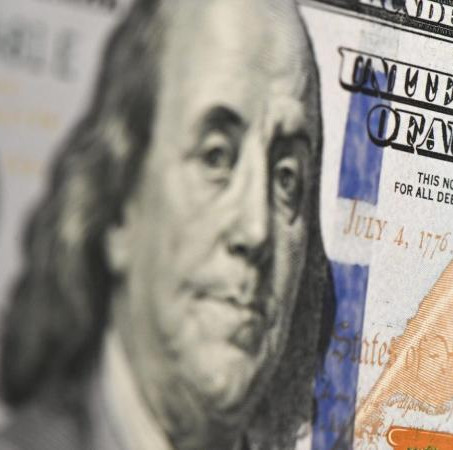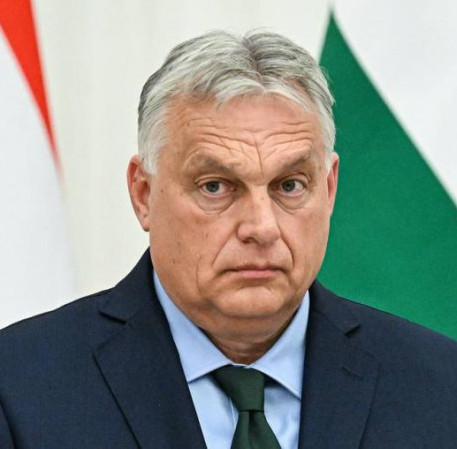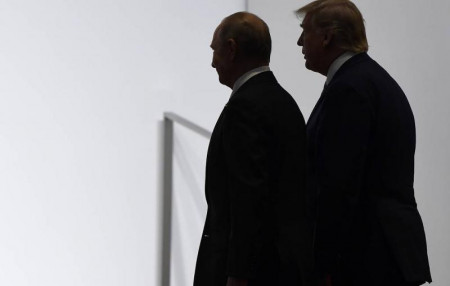A phone call between Russian President Vladimir Putin and his US counterpart Donald Trump has indicated a dramatic shift in relations between the two countries, international experts assert.
Trump has demonstrated that the US administration considers Moscow’s interests and regards Russia as a key player in global governance.
TASS has compiled the response of the media and experts to the conversation between the two leaders.
Response in Europe, Ukraine
Bloomberg, citing sources, reported that European officials were "blindsided" and "stunned" by the conversation between the two leaders. According to the news agency, the Europeans are concerned that Trump will reach an agreement with Moscow before they have a chance to influence him.
The Economist observed that the conversation has intensified fears in Europe and Ukraine that the settlement will occur without Kiev's involvement. The magazine emphasized that "Trump is in effect starting to normalize relations with Russia without obtaining tangible concessions," with the future of US support for Ukraine being "unclear."
The Financial Times, citing anonymous EU officials, stated that Europe is worried that Trump will exclude the European Union from the negotiations while the Europeans will have to bear the responsibility of reconstructing Ukraine and ensuring its security.
Vision of interaction with Russia
Trump has demonstrated that he considers Russia an important force in global governance, which is a very positive sign for dialogue and cooperation, Gou Liu, an expert from the Center for Russian Studies at East China Normal University, said, commenting on the conversation between the two leaders. He pointed out that not only did they raise the issue of the settlement in Ukraine, but also the Middle East, energy, artificial intelligence (AI), the US dollar, and other topics.
In the future, Washington might remove sanctions against Russia if agreements on Ukraine are reached, political analyst and researcher Christopher Helali thinks. Commenting on the conversation between Trump and Putin and US Secretary of Defense Pete Hegseth’s statement that Ukraine is not likely to return to its 2014 borders, the expert observed that the US administration "understands, at least in word, the perspective of the Russian Federation and the Russian Federation's need for its own national security and its interests in Eastern Europe and the wider region."
Lawrence Wilkerson, US Army Colonel (Ret.) and former chief of staff to US Secretary of State Colin Powell, remarked that interaction between Putin and Trump can potentially guide the sides toward a quick settlement on Ukraine. He added that Hegseth’s remarks, who essentially ruled out Ukraine’s accession to NATO and warned Europe that, in the opinion of the Trump administration, the EU must take care of its security on its own, "must have left" NATO Secretary General Mark Rutte "in shock."
A US political scientist who asked not to be named told TASS that "today's remarks from President Trump and Secretary of Defense Pete Hegseth represent a thawing of the ice unlike anything since 2014. According to him, "the optimistic tone struck by the White House suggests that there is already a degree of alignment between Washington and Moscow on at least some of the major elements."
Italy’s La Repubblica noted that Trump and Putin discussed the global agenda which signals their "intention to reshape the planet together."
Meanwhile, Switzerland’s Le Temps suggested that Hegseth’s statements appear like concessions to the Russian leader in light of which "Donald Trump’s much-touted art of concluding deals looks like capitulation" to Moscow.
Europe’s reduced priority
David Speedie, a member of the board of the American Committee for the US-Russia Accord, has stated that in Brussels, Hegseth implied the "reduced priority" of European affairs for the current US administration.
Michael Desch, head of the Notre Dame International Security Center, shared a similar view with TASS. According to him, "it is also clear from Secretary Hegseth's remarks that President Trump regards post-war Ukraine as a European issue." He added that the Trump administration "seems to be telegraphing that it is no longer business-as-usual in Europe."
China’s Asia Times reported that "Trump has an important geopolitical perspective. It runs something like this: European security is important but it is not really threatened by Russia."
Germany’s Frankfurter Allgemeine Zeitung observed that Washington’s stance "in many ways aligns with Putin’s interests" and raised doubts about much of what was done by European countries, including Germany.
Meaning behind Washington’s signals
The phone conversation between the two leaders has elevated the negotiation process on Ukraine to a higher level, France’s La Depeche reported.
Australia’s ABC stated that merely three weeks after his inauguration, "Trump continues to throw the status quo into the air," while following his conversation with the Russian president, "international geopolitics changed — yet again," delivering "a devastating blow to Ukraine."
In turn, the Sydney Morning Herald characterized the conversation as the pivotal moment cementing a "reality Zelensky would have recognized long ago: that he’ll have to make a deal."
France’s BFMTV highlighted that dialogue between Putin and Trump "has opened up opportunities for reciprocal visits for the first time in 12 years." The TV channel reminded that in 2013, Barack Obama was the last US president to visit Russia.
Former French Ambassador to the US Gerard Araud told the LCI TV channel that the "Americans want to exit this conflict." In turn, Florian Philippot, leader of French political party Les Patriotes and former member of the European Parliament (MEP), saw the signs of a pragmatic approach following the exchange of opinions in the phone conversation between the two presidents. According to him, the "conversation indicates Trump’s intention to leave behind the more belligerent forces." The expert believes that "Vladimir Zelensky is a puppet of ‘war hawks’ and EU countries who went insane under pressure of the previous US administration."
Mark Galeotti, British political scientist and member of the Royal United Services Institute for Defense and Security Studies, RUSI, asserted that Ukraine had found itself in the position where it is merely informed of the decisions made at a higher level. He pointed out that Zelensky tried to court Trump and offer US companies priority access to Ukrainian natural resources as well as projects on rebuilding the country but it seems that none of this had worked out. He stressed that instead, the Putin-Trump conversation demonstrated that Moscow and Washington are capable of resolving the issue on their own.



